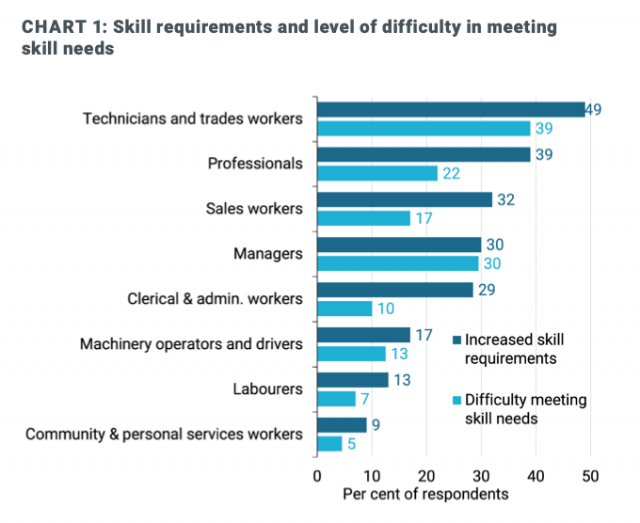
Higher Demand
Due to boosted demand, Mercer forecasts that the intensification of skill shortages within the industry will lead to significant remuneration pressures. Already in 2019, wages in the construction industry were facing upward pressure; wages rose an average of 3.9% in Q3 2019, above the average of 2.7% for all industries. This upward pressure on wages will only continue; boosted demand and COVID-19 border restrictions are exacerbating the already finite pool of skilled specialists. And as employers begin to offer higher and higher wages, the future industry could expect to see reduced retention rates.
With severe shortages in critical workers and rising labour costs, infrastructure projects are at risk of cost blowouts and delays: Engineers Australia cited that increases in the cost of labour due to skill shortages could trigger cost overruns of up to 20 per cent of total project cost. This is already evident in Victoria, where the rising cost of labour has prompted cost blowouts in excess of 25 per cent. A series of suburban road upgrades, for example, cost more than $50 million than originally planned. Government documents cite ‘market escalation’ as the primary contributor, referring to the rising cost of operational costs – such as labour and materials – as opposed to changes to the project.
Industry Investment
Moreover, according to Infrastructure Australia, the overall volume and scale of infrastructure projects has contributed to a stretched construction market with reduced market competition. Skill constraints will likely intensify this trend; as companies lack the skill and workforce to complete the job, high risk ‘mega-projects’ will fail to achieve a desired level of competition during procurement, fuelling delays and increasing costs. Likewise, this increase in investment on infrastructure – requiring more labour and materials – comes during a period of already constrained resources. Given the already lower competition within the market, as cited by Deloitte, these factors will combine to push infrastructure prices upwards.
For more industry Insights: https://www.infrastructurepeople.net.au/industry-insights/


